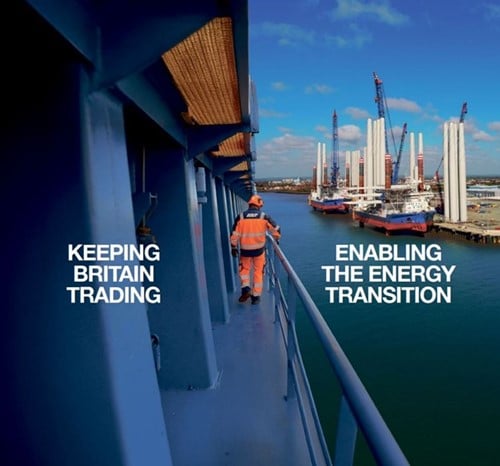
The UK Government is taking a hands-on approach in the workings of the economy and consulting to find the levers that can be pulled to drive growth. One of the central planks is a new Industrial Strategy and earlier this month, Associated British Ports responded to a consultation about what shape this should take, the sectors and the places that should be singled out. Below, Victoria Fleming-Williams, Public Affairs Manager at ABP reflects on some of the highlights.
There is plenty to like in this Industrial Strategy. It provides continuity by joining up with other government aims like Labour’s Five Missions, it identifies sectors that we agree are vital and asks which subsectors should sit within these and most importantly, it recognises that it must target the right places, such as the industrial sites that can drive growth and enable net zero.
We’ve suggested how to judge which subsectors should be prioritised, namely that they should either be already operational and show significant opportunity – like offshore wind and electric vehicles – or show significant momentum in the number and maturity of projects plus demonstrable appetite from private investors. It’s no small coincidence that using this criteria leads you to industries and projects found at many of our 21 ports, for example:
- automotive - with major export hubs at the Ports of Southampton and Grimsby;
- energy decarbonisation – with Siemens’ turbine blade manufacturing facility at Hull, plus major Operations and Maintenance hubs for the offshore wind sector at Grimsby, Barrow and Lowestoft; at Port Talbot we have major plans to create the world’s first hub for floating offshore wind;
- transport decarbonisation - with projects in Sustainable Aviation Fuel, plus marine decarbonisation being spearheaded in Southampton;
- industrial decarbonisation - with projects in hydrogen and carbon capture and storage at Immingham and potentially, at every other port.
But each of these subsectors faces obstacles that are slowing the pace of growth and decarbonisation. These include market failures, planning processes, grid connections, skills and on occasion, the machinery of government itself. Overcoming these is precisely the role of an activist government working in partnership with business, informed by a long-term, clear-sighted Industrial Strategy.
This Industrial Strategy must pick the right places, with the infrastructure, the transport links, development land and local skills that new businesses need. That means putting ports at the heart of this Strategy, prioritising key industrial sites to unlock projects, decarbonisation and growth.
Many solutions don’t need public funding, just better policy and an overhaul of the bureaucracy that slows decision-making. Government funding can be more of a hinderance than a help, so must be used sparingly and strategically. We cannot out-subsidise our competitors in the United States or Europe, but we can have a better policy and planning environment that gives global investors confidence to bring their capital to our country.
ABP wants to create new green industrial clusters and we’re a proven, reliable partner in delivering major infrastructure. We already have a green industrial cluster at our Port of Hull and major ambitions for our Welsh ports of Port Talbot, Barry and Newport. We’re here for the long-term, embedded in our communities and with a credible track record of investment. If this Government wants growth, we’re ready to get to work.


